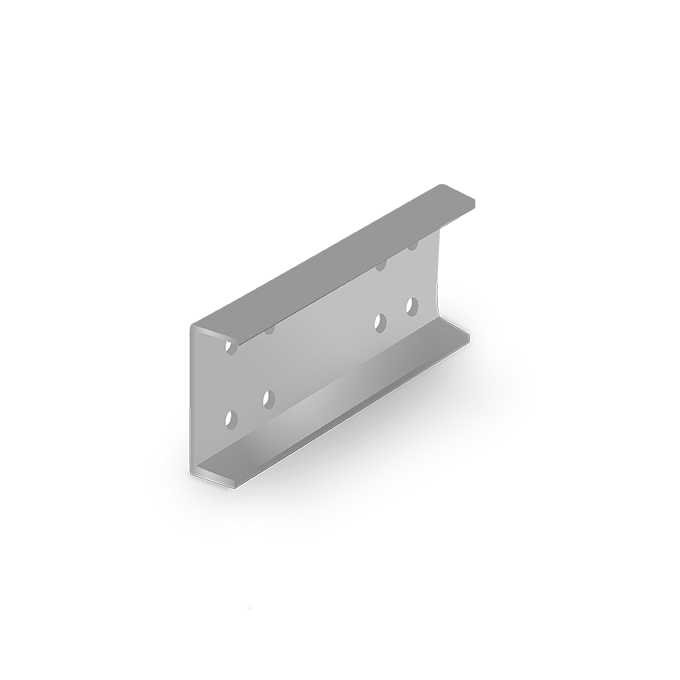
Accessories for profiles 0° for 160 mm bracket
The brackets are used to assemble Fiberline structural profiles that are subject to tensile and compressive forces, bending moment and shear, e.g. I and U profiles.
The brackets are designed for efficient assembly and load transmission. The brackets can transmit a greater shear force than the profile. This simplifies the sizing of the assembly.
Material: The brackets are made of acid-resistant stainless steel (1.4404 / AISI 316L) and are delivered pickled for maximum durability.
Number of holes: 8. The holes are over-dimensioned by 1.0 mm in relation to the bolt.
The bracket fits the profile heights 160 mm.
Description
Description
The brackets are used to assemble Fiberline structural profiles that are subject to tensile and compressive forces, bending moment and shear, e.g. I and U profiles.
The brackets are designed for efficient assembly and load transmission. The brackets can transmit a greater shear force than the profile. This simplifies the sizing of the assembly.
Material: The brackets are made of acid-resistant stainless steel (1.4404 / AISI 316L) and are delivered pickled for maximum durability.
Number of holes: 8. The holes are over-dimensioned by 1.0 mm in relation to the bolt.
The bracket fits the profile heights 160 mm.



